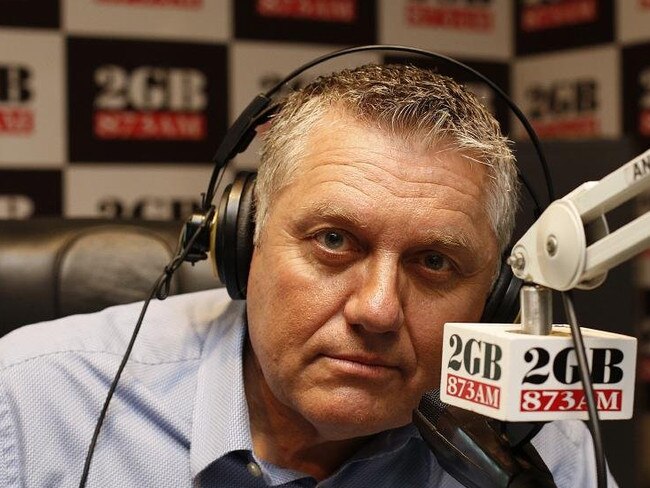Sydney aged care facility slammed over dementia patient being allowed to nominate Voice vote
Voting by late-stage dementia patients comes into focus as Ray Hadley blasts aged care home for documenting a dementia patient’s Voice voting preference, despite a doctor saying she is not capable of signing documents.
NSW
Don't miss out on the headlines from NSW. Followed categories will be added to My News.
Late-stage dementia patients will be able to vote in the upcoming Voice referendum unless their families and doctors have taken the step to have them struck off the electoral roll.
Elderly patients with limited mental capacity must vote when the Australian electoral commission‘s polling teams turn up to their aged care home if they remain on the roll in any elections.
The system — which has been in play for all previous federal elections under a provision in the Commonwealth Electoral Act — has come into the spotlight after a listener contacted 2GB host Ray Hadley to complain that his elderly relative with late-stage dementia had requested a Yes vote for an Indigenous Voice in their aged care plan.
A spokeswoman for the AEC said the commission regularly spoke to families and carers about the impact of ageing and dementia on voting capabilities.
“It really is a case-by-case basis. The importance of a provision that provides for removal from the roll in these circumstances would be acutely understood by carers and family members of people with advanced dementia for instance,” she said.

“We regularly encourage early and appropriate conversations be had between voters, their family members, friends and carers about what is appropriate – as do other bodies such as Dementia Australia. The process also provides that the action of removing someone from the roll under this provision cannot be taken without evidence of the need.”
The man who called 2GB said he was “very annoyed” to discover his 96-year-old aunt’s life preferences on her recent care and services plan said, “I wish to vote yes”.
“She has dementia and has been certified by a doctor stating that she is not capable of signing testamentary documents,” the relative said.
“Having known her for over 70 years I can assure you if she was lucid and not suffering from dementia she would not be voting yes.”
People living with early-stage dementia who are still capable of understanding the nature of voting can continue to vote as normal while those who may need extra support with comprehension can get resources from the AEC.
But for families that believe their relative is no longer capable of making the choice, a doctor must support the view before their name is removed from the roll.
“How many other aged care institutions are adopting this strategy and is it legal?”
Hadley said he had “grave concerns” about the alleged processes at the northwestern Sydney aged care facility.
“She’s got dementia,” Hadley said.
“How many other aged care institutions are adopting this strategy? And is it legal?
“Are your staff filling in on behalf of dementia patients under the heading life preferences.
“Is someone doing that on their behalf? Not their guardian?”
The Voice referendum is a proposed law to alter the Constitution to recognise the First Peoples of Australia by establishing an Aboriginal and Torres Strait Islander Voice.
The referendum will ask Australians if they approve of the proposed alteration.
If a majority of Australians vote in favour of the Voice, the Constitution would be amended to install a body to be called the Aboriginal and Torres Strait Islander Voice.
That body will have the power to make representations to the parliament and the Executive Government of the Commonwealth on matters relating to Aboriginal and Torres Strait Islander peoples.
The parliament shall, subject to this Constitution, have power to make laws with respect to matters relating to the Aboriginal and Torres Strait Islander Voice, including its composition, functions powers and procedures.
In Australia, The Commonwealth Electoral Act 1918 (Cth) states, “a person of ‘unsound mind’ who is ‘incapable of understanding the nature and significance of enrolment or voting’ is not entitled to have their name on the electoral roll or to vote in any Senate or House of Representatives election.”




